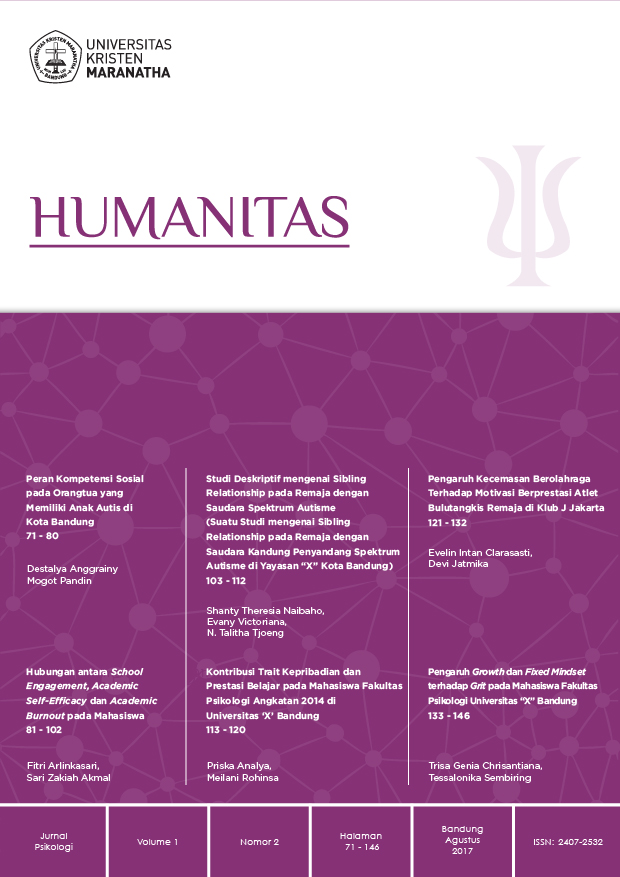Studi Deskriptif mengenai Sibling Relationship pada Remaja dengan Saudara Spektrum Autisme
Main Article Content
Abstract
The purpose of this research is to look at the description of sibling relationship between adolescences and their sibling whom has Autism Spectrum Disorder and how the factors affects this relationship using t-test. This research uses Sibling Relationship Theory from Furman and Buhrmester (1990). The method used is descriptive with purposive sampling. There are 21 adolescences as participants. Each participant filled the Sibling Relationship Questionnaire which arranged by Furman and Burhmester. The questionnaire itself validated by experts and has the reliability 0.946 using alpha cronbach SPSS 16.00. Based on the data process, the result is, all of the participants have negative sibling relationship. The conclusion is the adolescent most often display the negative actions from sibling relationship which are conflict like quarelling, competition and antagonism they are also feel the different action towards them from parents. Different outcomes came from the age gap, respondent position family and the amount of children in the family of respondents according the factors. The researcher propose suggestion for the adolescence to open up with what the feel, in addition to further other researchers are advised to do signification factors and also advised to do some research into a larger number of samples in order to get a broader overview and thorough.
Downloads
Download data is not yet available.
Article Details
How to Cite
Naibaho, S. T., Victoriana, E., & Tjoeng, N. T. (2017). Studi Deskriptif mengenai Sibling Relationship pada Remaja dengan Saudara Spektrum Autisme. Humanitas (Jurnal Psikologi), 1(2), 103–112. https://doi.org/10.28932/humanitas.v1i2.419
Issue
Section
Articles

